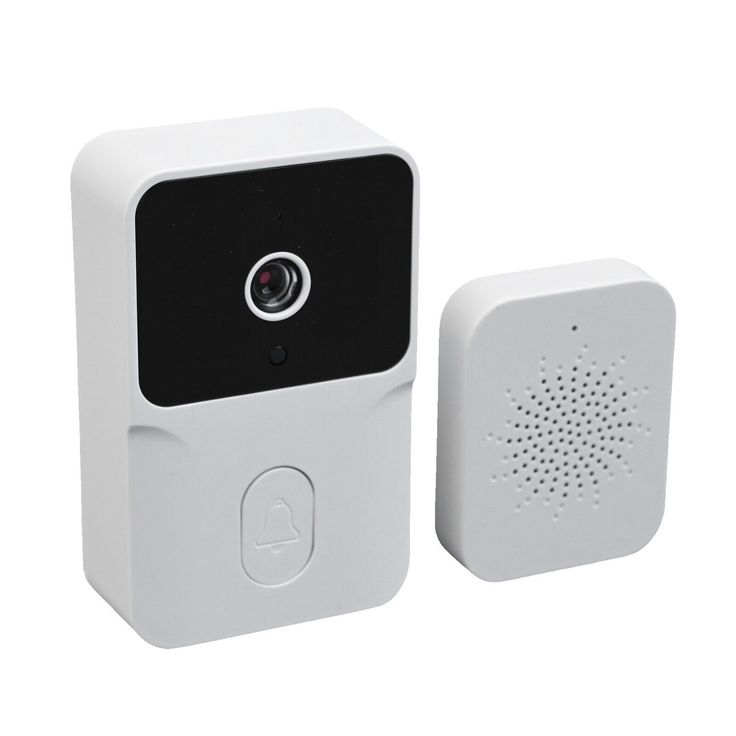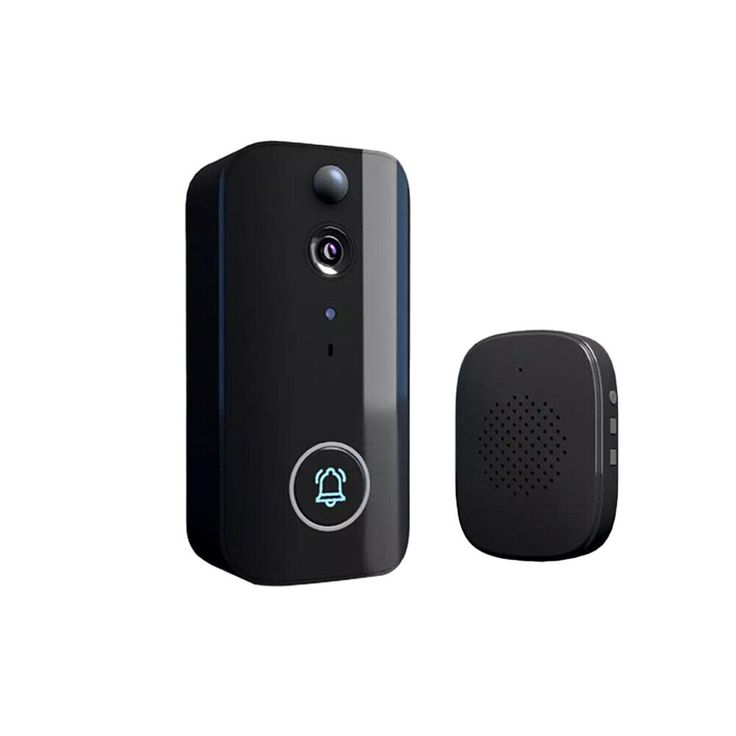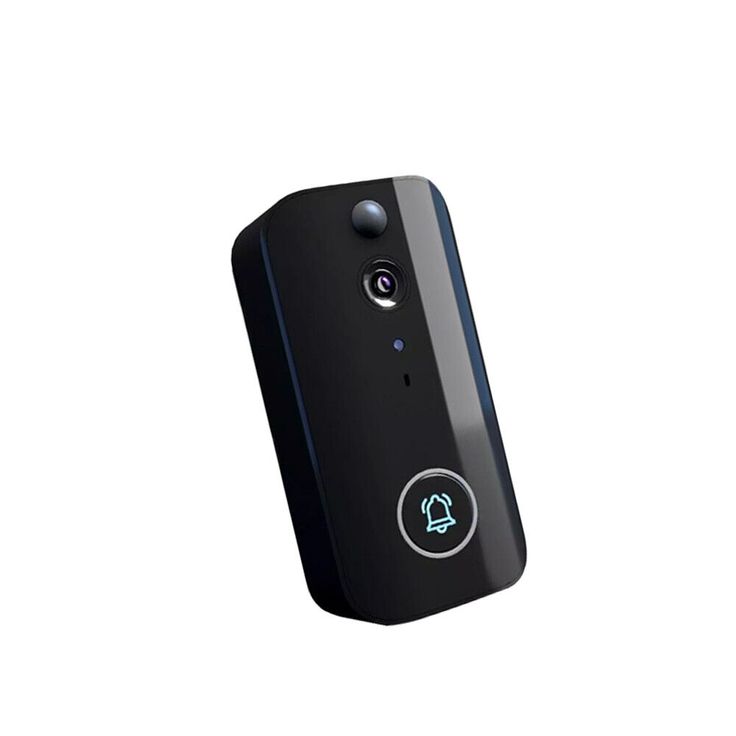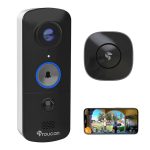Introduction to Ring Doorbell Recording Capabilities
Ring doorbells offer smart ways to keep your home safe. Does ring doorbell record all the time? They do not record all the time. Instead, they have motion-activated features and Live View options.
Motion-Activated Recording Features
Ring doorbells record when they detect motion. Users can set up zones and adjust sensitivity. When motion happens, they capture short video clips.
Live View Functionality
With Live View, you can see real-time footage from the Ring app. This works on smartphones and tablets. It ends after a set time to save battery and data.
Ring’s Subscription Plans Overview
Ring offers subscription plans for more features. Plans include Basic, Plus, and Pro. They each provide different levels of video history storage and extra services.

24/7 Recording Options for Ring Devices
Ring devices offer a range of recording options. This includes motion-activated and Live View functionalities.
Wired Cameras and Continuous Recording
Ring now includes 24/7 Recording for wired cameras in the Ring Home Premium plan. This lets your cameras record non-stop. This feature ensures you miss nothing.
Snapshot Capture and Its Benefits
Snapshot Capture takes still photos at set intervals. These photos upload to cloud storage. They offer a visual timeline of events.
Subscription-Based Extended and Continuous Live View
With Ring Home Standard, Live View extends up to 30 minutes. Ring Home Premium offers Continuous Live View, for long-duration real-time monitoring.
How Motion Events Trigger Ring Recordings
Motion events significantly trigger recordings for Ring doorbells and cameras, playing a key role in their functionality.
Motion Zones and Sensitivity Settings
Users can set specific areas within a camera’s field of view, known as motion zones. These zones ensure recordings trigger only when crucial activity is detected, minimizing unnecessary alerts. Sensitivity settings let users adjust how responsive their device is to detected motion. This customization helps in reducing false alarms caused by trivial movements, like trees swaying.
The Role of Infrared Night Vision in Recording
Ring cameras use infrared night vision to detect and record activity in low-light conditions effectively. This technology allows the cameras to capture clear footage day or night. Accurate recording during night hours is essential, ensuring that recordings occur even in reduced visibility, enhancing security around the clock.

Ring Protect Plans and Video Retention
The Differences Between Basic, Plus, and Pro Plans
Ring offers three main subscription plans, each tailored to meet different user needs.
- Ring Basic: Priced at $3.99 per month, Ring Basic covers video recording for one device. It stores video footage for up to 180 days. This plan is suitable for individuals with a single Ring device.
- Ring Protect Plus: For $10 per month, this plan covers all Ring devices at a single location. It includes all the features of the Basic plan plus extended warranties and enhanced notifications. It’s ideal for users with multiple Ring devices.
- Ring Protect Pro: Priced at $20 per month, Protect Pro adds professional monitoring and cellular backup. This plan supports Ring Alarm systems and is perfect for comprehensive home security.
Video Storage Timeframes and Customization Options
Users can customize video storage time based on their subscription plan:
- Storage Duration: Depending on the plan, you can store videos from 60 to 180 days.
- Customization: You can adjust video storage time directly in the Ring app under ‘Control Center’ or on the Ring website.
- Access to Videos: Any Ring Protect Plan grants access to past videos within the specified storage period.
The Impact of Subscription Cancellation on Video Storage
Canceling a Ring Protect Plan affects video storage significantly:
- Video Deletion: Once a plan is canceled, stored videos are deleted after the end of the storage period.
- Restoration of Services: If the plan is reinstated, previously stored videos cannot be recovered.
- Device Reset: A reset device reverts to default settings, potentially leading to lost videos without ongoing subscription.
Understanding these details helps manage your recordings effectively, ensuring security and compliance with your needs.
Managing Your Ring Doorbell Recordings
Managing your Ring doorbell recordings effectively ensures you never miss crucial moments. Here’s how to handle and preserve these vital recordings.
Steps to Download and Preserve Videos
Downloading and saving Ring videos is straightforward. Follow these steps:
- Open the Ring app or log into your account on the Ring website.
- Navigate to ‘Event History’ or ‘History’.
- Select the videos you want to save.
- Download them directly to your device.
Regularly download and backup videos to ensure you have access to important recordings before they expire.
Options for Saving Ring Video Without a Subscription
If you don’t subscribe to a Ring plan, consider these methods:
- Use a free trial period to download necessary videos.
- Utilize your phone’s screen recording feature during live view sessions.
- Install PC screen recording software to capture and save videos.
- Set up a local camera with recording capabilities as a backup.
These alternatives help you keep recordings even without a paid subscription.
Recovering Deleted Ring Videos
If you delete a Ring video or it’s automatically removed after the storage period, recovery is tricky. Here’s what you can try:
- Employ data recovery software to scan and restore videos from your device.
- Contact Ring support for potential recovery, though success isn’t guaranteed.
Keep in mind: Download and backup your videos regularly to avoid loss.

Alternatives to Ring with 24/7 Recording Capability
For those seeking non-stop recording, alternatives to Ring doorbells exist.
Competitive Analysis: Arlo Pro 4 and Google Nest Cam
Arlo Pro 4 and Google Nest Cam offer 24/7 recording, unlike Ring. Arlo Pro 4 needs a subscription for continuous recording. Google Nest Cam needs a Nest Aware Plus plan for 24-hour coverage. Both brands provide clear video and integrations with other smart home devices. They require stable internet connections.
Considerations for Choosing Alternative Security Cameras
When selecting a 24/7 recording camera, consider video quality, storage options, and cost. Ensure the camera meets your security needs. Check for features like motion alerts and night vision. Also, review subscription plans and data privacy policies before buying.
Data Privacy and Security Concerns for Ring Users
As smart home devices, Ring doorbells come with the need for robust data privacy and security frameworks.
Understanding Ring’s Data Retention Policies
Ring doorbells keep video footage on secure servers. With a plan, you can store videos up to 180 days. Ring then deletes this data automatically.
User Control Over Video Storage and Privacy
You have control over how long Ring stores your videos. You can choose storage times in the app or on Ring’s website. For privacy, save and delete videos as needed.
Conclusion and Final Thoughts on Ring’s Recording Functions
Ring doorbells offer convenient and flexible recording features but don’t record non-stop. They provide motion-activated recording and Live View, ensuring users capture important events. Although continuous recording isn’t native to Ring products, the Ring Home Premium plan now includes 24/7 recording for wired cameras. This new feature is a significant addition for those seeking comprehensive monitoring.
For standard use, the motion-activated recording is often sufficient, reducing unnecessary footage and saving battery life. The adjustable motion zones and night vision capabilities add to the doorbell’s efficiency and practicality. With subscription plans, users can enjoy extended video storage and additional features, tailoring their experience to their security needs.
Ring’s data policies and privacy controls give users authority over their video storage and management. The option to set storage durations and manually save videos provides flexibility and added peace of mind regarding data security. Alternatives like Arlo and Google Nest are available for 24/7 recording, although they come with their own costs and requirements.
In conclusion, while Ring doorbells may not record all the time, they offer a balanced mix of security, user control, and flexible recording options to meet various home security needs. Users should weigh their options and choose based on their specific requirements and concerns around video storage, monitoring needs, and privacy considerations.

